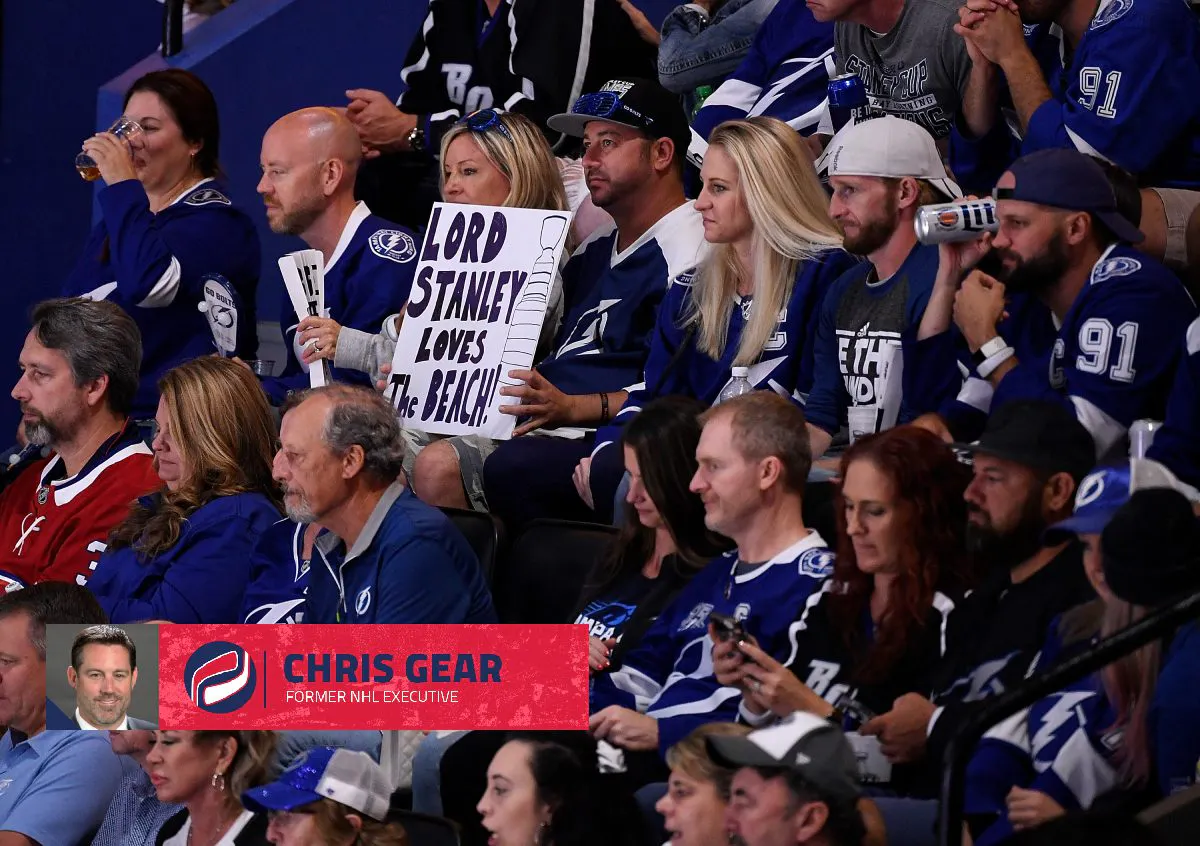Gear: How the Stanley Cup playoffs affect team revenues

“Playoffs! Playoffs!?”
We all remember that exclamation from Indianapolis Colts head coach Jim Mora. It has become a .GIF, a sound bite and one of the most reproduced interview clips in sports history. After all, no matter the sport, the playoffs are what it’s all about.
As the NHL season winds down and the final playoff races unfold, teams in the hunt are gearing up for the most exciting time of the year, while teams that have fallen short are starting to think about the promise of next year. One of the most fascinating things to me about the playoffs is the difference in financial motivation between players and teams.
From a player’s perspective, playoffs are about the love of the game more than anything. Players are not paid any additional salary for competing in playoff games. Their salaries are paid in full whether they play four seven-game series or pick up their golf clubs after their last regular-season game at the end of April. Sure, there is a pooled playoff fund from which an amount is paid to each player that participates in the playoffs, and the increments are higher depending on round-by-round success, but the amounts are generally not in the same realm as the players’ regular-season pay. It’s more about the thrill of chasing a collective goal and the fulfillment of that lifelong dream of hoisting the Cup.
On the flipside, the playoffs are where teams and owners really make their money. Most teams don’t factor playoff revenue into their budgets because of the uncertainty of qualifying, so playoff revenue is like a budget windfall. If a team can perform at break-even level or better during the regular season, the playoffs are a gravy train of pure profit. The allure of staying competitive enough to have a chance at playoff revenue is why some teams have such difficulty giving in to a rebuild scenario. As much as fans want their teams to maximize the opportunity for that singular crowning achievement, it’s still a business measured and assessed on an annual basis, and rebuilding years don’t tend to look very good in the financial statements.
When a team makes the playoffs, the revenue streams become revenue oceans. Ticket prices are readjusted from what was charged during the regular season, as supply and demand forces take over. Even without taking into account the extortion of the secondary markets, box office prices can be increased to many multiples higher for playoff games than regular-season games. A great playoff run can also influence the setting of ticket prices in the subsequent season. Teams want to capitalize not only on the fervour of the playoffs in the current season, but on the carryover effect of fan interest in the team going forward.
When it comes to sponsorship, almost every corporate partner, from the company with its name on the arena to the company buying a single corner rinkboard decal advertisement, will be charged additional amounts for their playoff exposure and activations. New sponsors also come into the fold to harness specific playoff visibility. NHL teams’ business operations get incredibly busy in the days and weeks just before playoff time and then throughout the playoffs as they plan fan activations, promotions and marketing campaigns, all backed by money from sponsors who want their brands attached to a team during its time of glory.
Merchandise sales skyrocket as fan interest spreads from the hardcore fans that usually buy team gear to the casual sports fans that suddenly want to jump on the bandwagon and get jerseys, caps or playoff t-shirts. Food and beverage sales spike because of the sense of anticipation and celebratory atmosphere in the arenas. Everyone knows that winning is the best predictor of strong beer sales.
Finally, there are the ancillary revenue opportunities that can come from hosting road-game watch parties or playoff-themed events and gatherings.
In short, playoffs are the goose that laid the golden egg. And after a couple of pandemic years that badly cut into team revenues, NHL teams and their owners could use a few more geese.
It’s not all about money, of course. Owners and team executives want to win the Stanley Cup almost as much as players do. I suspect that the satisfaction and sense of accomplishment that comes with group achievement outweighs the money for most people. The piling up of stacks of playoff cash is nonetheless a great consolation prize.
When the 2011 Cup was awarded to the Boston Bruins, hearts and spirits in the Canucks’ hockey and business operations boardrooms were crushed. Then, one of our finance guys offered this sad but true reality.
“Technically, this was the best financial outcome we could have. We hosted Game 7 of the Stanley Cup Finals, but don’t have to pay for a parade, a victory party or championship rings!”
His logic didn’t ease the pain of that devastating loss, but it did make for a pretty strong balance sheet.
As you watch this year’s playoffs unfold, it may not be the Jim Mora .GIF you remember, but another much-circulated clip, that of Tom Cruise’s Jerry Maguire screaming “Show Me the Money!”

____
Chris Gear joined Daily Faceoff in January after a 12-year run with the Vancouver Canucks, most recently as the club’s Assistant General Manager and Chief Legal Officer. Before migrating over to the hockey operations department, where his responsibilities included contract negotiations, CBA compliance, assisting with roster and salary cap management and governance for the AHL franchise, Gear was the Canucks’ vice president and general counsel.
Click here to read Gear’s other Daily Faceoff stories.
______

PointsBet Canada has officially launched in Ontario! Get a $25 free bet just for signing up right here!
______